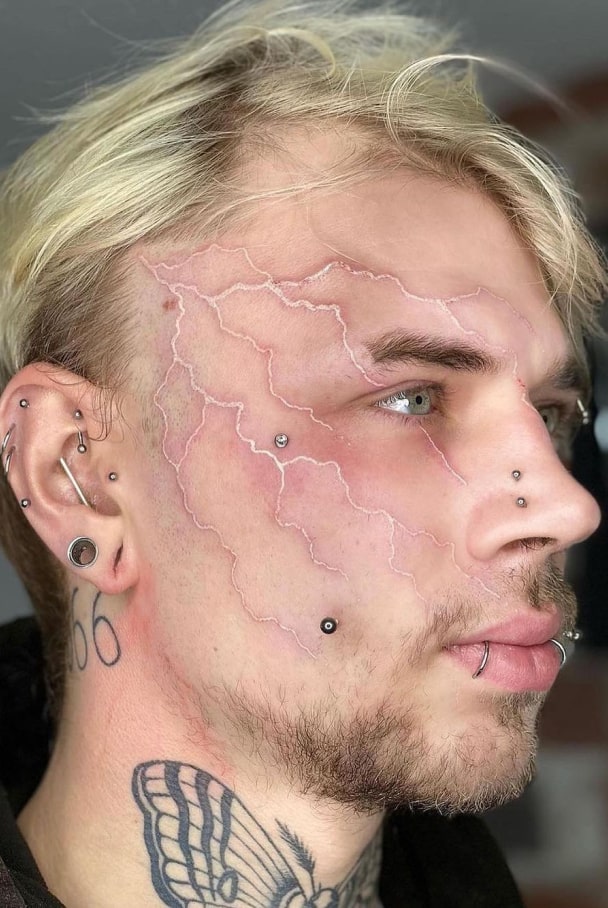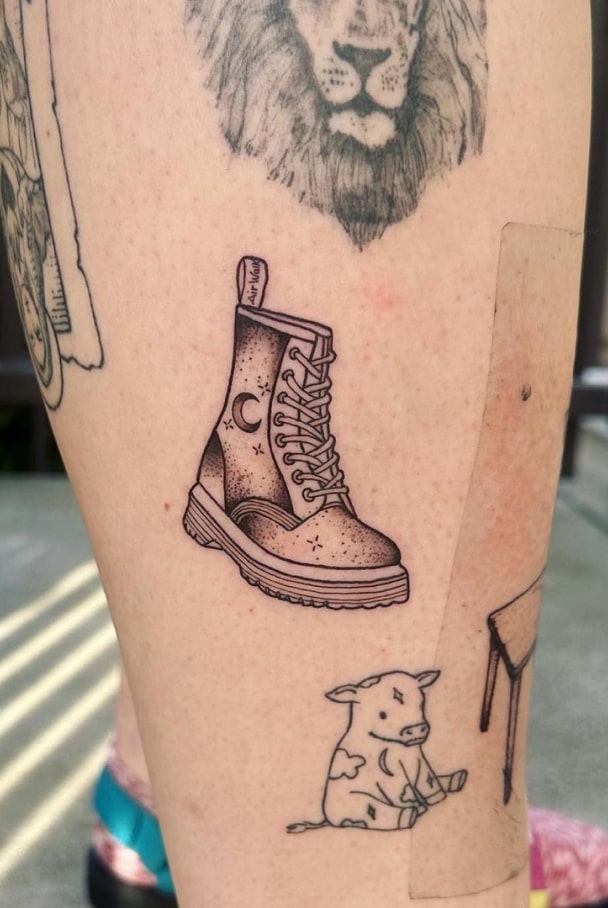While many appreciate tattoos for their aesthetic and cultural significance, emerging research suggests that tattoos may offer unexpected health benefits—specifically, a boost to the immune system. Scientists have begun to explore how the tattooing process affects the body’s immune response, and the findings may surprise you. People with multiple tattoos may, in fact, have stronger immune systems than those without any ink.
The Science Behind Tattoos and Immunity
At first glance, getting a tattoo might not seem like an activity that could enhance immunity. The process involves repeatedly puncturing the skin with needles to deposit ink into the dermis, the second layer of skin. This puncturing triggers an immediate immune response as the body perceives the process as an injury and mobilizes defences to heal the affected area.
During tattooing, the immune system dispatches white blood cells, particularly macrophages, to the site of the tattoo. These cells work to engulf and remove foreign particles, including some of the ink. Meanwhile, other immune cells, like fibroblasts, encapsulate the remaining ink particles, effectively locking them into the skin, which is what makes tattoos permanent.
Over time, this repeated immune response could train the immune system to become more efficient and resilient. A study published in the American Journal of Human Biology found that individuals with multiple tattoos exhibited lower cortisol levels and a more robust immune reaction than those receiving their first tattoo.
Tattoos and Stress Adaptation
Cortisol, often referred to as the stress hormone, plays a crucial role in immune function. While short-term cortisol spikes help the body respond to threats, chronically high levels can suppress immune responses, making individuals more susceptible to illness.
Research suggests that people with more tattoos may experience reduced cortisol levels. This is significant because lower cortisol levels are associated with improved immune function. Essentially, the body becomes more adept at handling stressors over time, whether they come from external sources or internal challenges such as infections.
Repeated exposure to the microtrauma of tattooing may also prime the immune system for future challenges. This adaptation is similar to the way exercise strengthens muscles—the more the immune system is stimulated in a controlled way, the stronger it may become in the long run.
Faster Recovery and Increased Resistance to Illness
Another potential benefit of a strengthened immune response from tattoos is faster recovery from illnesses. Since a robust immune system can respond more effectively to infections, individuals with more tattoos may recover from colds, flu, and other common illnesses more quickly than those without tattoos.
Additionally, studies suggest that people with multiple tattoos have higher levels of immunoglobulin A (IgA), an antibody that plays a vital role in mucosal immunity. IgA is a frontline defense against pathogens that enter through the respiratory and gastrointestinal tracts. Higher levels of this antibody may mean better protection against infections, particularly those affecting the respiratory system.
How Many Tattoos Are Needed to See Immune Benefits?
While research is still in its early stages, existing studies suggest that receiving multiple tattoos appears to yield more immune benefits than a single tattoo. First-time tattoo recipients tend to experience a temporary dip in immunity due to the stress and trauma of the tattooing process. However, as the body becomes accustomed to the experience, subsequent tattoos may trigger a more efficient immune response rather than a depletion of resources.
The frequency and size of tattoos may also play a role. People who get tattoos regularly might experience a more consistent immune-boosting effect compared to those who only have one or two pieces of body art.
Potential Drawbacks and Considerations
While the immune-boosting benefits of tattoos are promising, there are some risks to consider. Tattooing carries the possibility of infection if proper hygiene practices are not followed. Choosing a reputable tattoo artist who adheres to strict sterilization procedures is essential to minimize this risk.
Additionally, while tattoos may contribute to a stronger immune system over time, they are not a replacement for other immune-boosting practices such as maintaining a healthy diet, exercising, staying hydrated, and getting enough sleep.
Individuals with preexisting immune conditions should also consult with a medical professional before getting tattoos to ensure the process is safe for them.
The Bigger Picture: Tattoos as a Health Indicator?
Beyond their immune benefits, tattoos may also serve as an indicator of resilience and overall health. Those who undergo multiple tattoo sessions demonstrate a tolerance for pain, stress, and the healing process—factors that are often linked to general well-being.
As scientific research on tattoos and immunity continues to develop, it may lead to broader discussions about how the human body adapts to stress and injury. Could the process of tattooing be harnessed in medical therapies? Could future research help refine our understanding of immunity in unexpected ways? These questions make the intersection of tattoos and health a fascinating field of study.
Final Thoughts: Tattoos as More Than Just Art
The idea that tattoos could contribute to a stronger immune system challenges the traditional perception of body art. While people have long sought tattoos for personal, cultural, or aesthetic reasons, science is now revealing that there may be hidden health benefits as well.
As research continues, the link between tattoos and immunity could open new doors in understanding how the body strengthens itself against disease. In the meantime, for those who love ink, this emerging science offers yet another reason to embrace tattoo’s not only as a means of self-expression but potentially as a way to enhance physical resilience.








